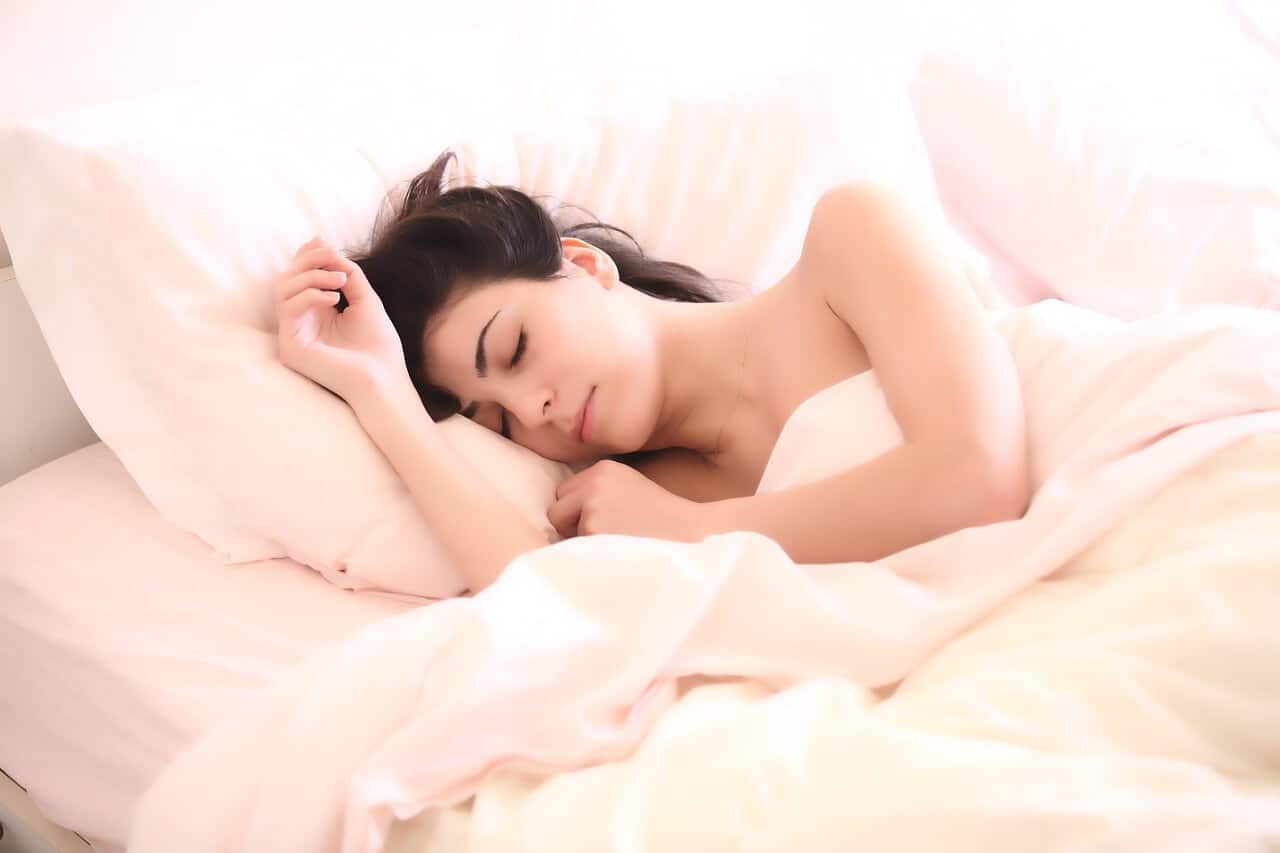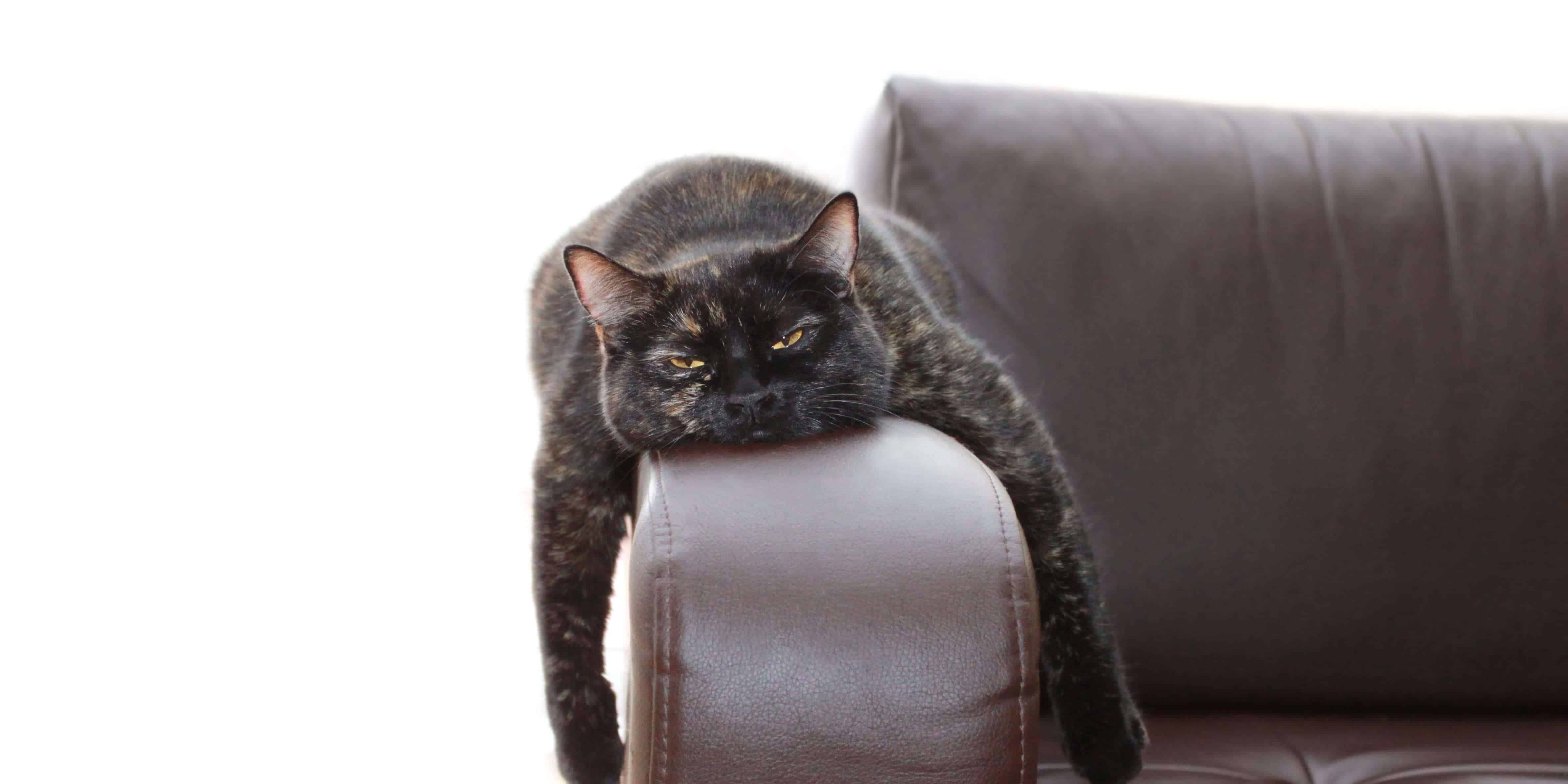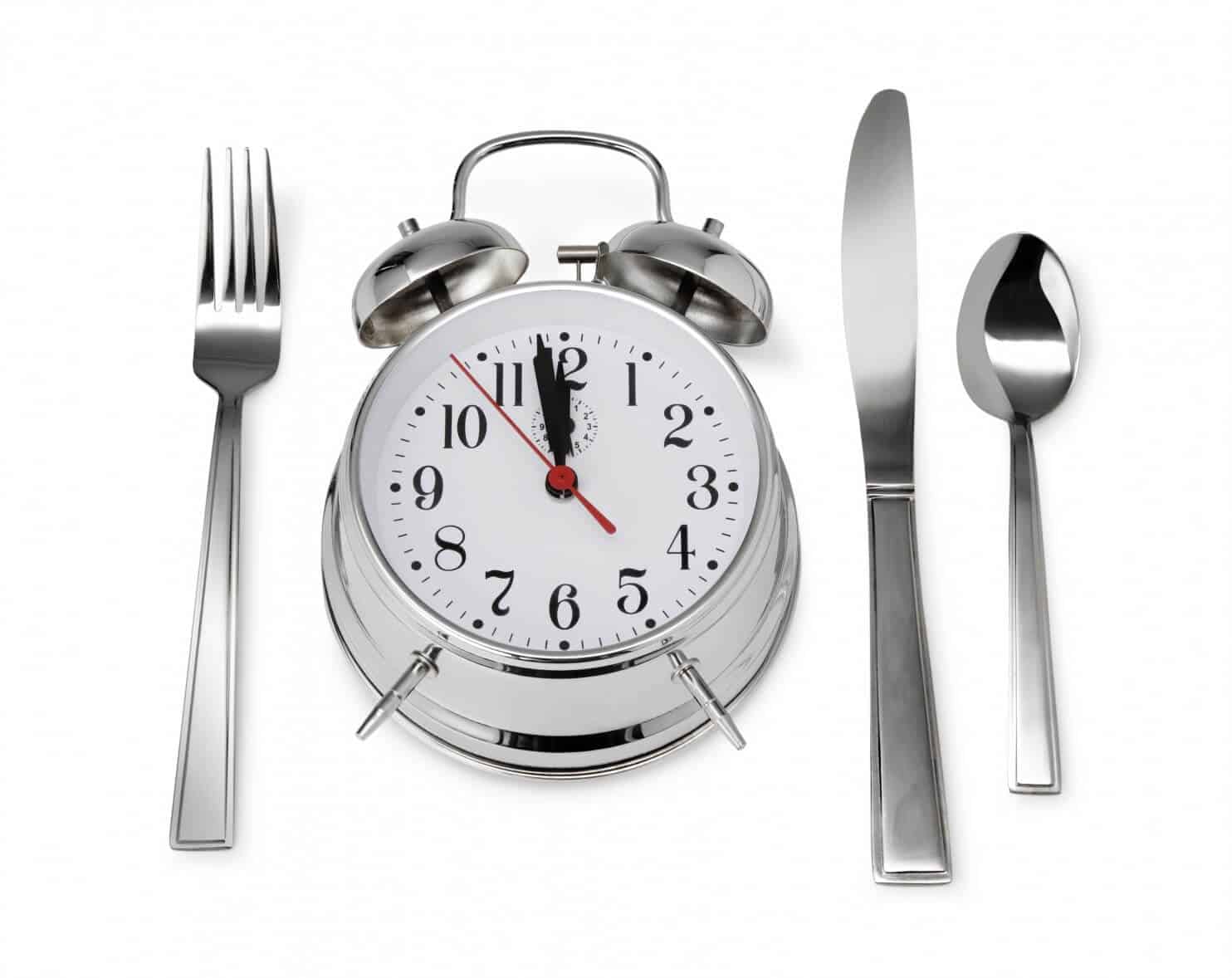The amount of sleep you get at night doesn’t just determine whether you’ll feel energized or exhausted when you wake up in the morning. It can also have a grave impact on your weight.
In recent years, science has uncovered a multitude of ways for how sleep deprivation could increase the chances of obesity and make it harder to reach or maintain a healthy size, which means that logging too little shut-eye could be standing between you and your slimmer self.
“Researchers concluded that self-reported sleep restriction impacts your ability to burn calories and increases the risk of weight gain,” states Dr. Michael J Breus, The Sleep Doctor, Ph.D.
Here’s a look at the surprising ways that logging too little sleep could be impacting your weight.
Plus, how you can get the sleep you need—and achieve your weight-loss goals.
The Link Between Sleep and Weight Loss
According to NCBI, research has long shown a connection between lack of sleep and weight gain. But just how much of an impact can sleep deprivation have?
The answer: A LOT! In a study that followed more than 68,000 adults for 16 years, researchers found that participants who slept less gained weight. “Short sleep duration is associated with a modest increase in future weight gain and incident obesity,” according to the American Journal of Epidemiology.
Weight loss requires a dedication to sleep and eating right, which is why an app like Noom is ideal for helping keep you on the path to a slimmer you.
“Poor sleep has been linked to many problems, including weight gain, and obesity.” states Health Coach Valentina Dolci.
According to a British study of 1,615 people, adults who snooze for six hours a night or less have waist sizes that are nearly 1.5 inches larger than people who get enough sleep, based on information in a study in the journal PLOS One.
“If you want to keep your body working well, you need to get enough sleep every night,” states Dr. Grandnerl, the Director of the Sleep & Health Research Program at the University of Arizona College of Medicine.

Poor Sleep and Weight Loss
Is Sleeping Good for Weight Loss?
What is it about not sleeping enough that leads to weight gain? The evidence suggests that several different factors could be at play. Chronic sleep deprivation seems to make you eat more food, burn fewer calories, and it even affects hormones that can have an impact on your weight.
“Most adults require 7 to 9 hours for optimum overall health. Regularly getting less sleep than you need leads to sleep debt, which is difficult to make up, and often leads to chronic health conditions,” states Rachel, owner of Pillow Picker.
“I am a devotee of sleep. When I have a good night’s sleep, my mind is clearer, my emotions smoother and I am more productive the next day. It’s much more enjoyable to be alive. That’s enough for me to make sleep a priority. Sleep is just as important as diet and exercise for health and yet is often overlooked. Try to remember how you felt the last time you had a good night’s sleep; or, better yet, the last time you were rested. If that isn’t enough inspiration, perhaps a look at the research will inspire you. Sleep has been found to improve memory and learning, decrease inflammation, maintain a healthy weight, lower stress, decrease accidents, improve mood and much more. It has even been found to help us live longer. If we all got enough rest, life would be so much better for us both as individuals and as a society,” states Mary Maddux, Counselor and Healing Arts Practitioner and Founder of Meditation Oasis.
So, the million-dollar question: How important is sleep when trying to lose weight? VERY important!
Staying up late gives you more time to eat.
If you’ve ever downed an enormous bowl of ice cream or that gigantic bag of popcorn in front of your computer after dinner, you know that most of us tend to make less-healthy eating choices at night. Often, the later we stay up, the more likely we are to start raiding the cupboard or fridge for junky snacks. And in turn, take in more calories than we need. “Going without enough sleep makes junk food look more tempting, and increases desire for fatty and high-calorie foods. Staying up late at night often leads to greater overall calorie consumption and makes us more prone to putting on weight,” states Dr. Michael J Breus.
Research backs this up. Subjects who stayed up late consumed around 550 extra calories between 11:00 P.M. and 4:00 A.M., found one study presented at an American Heart Association conference.
Of course, one late-night snacking session probably won’t wreck your diet. But over time, the extra calories can add up, which means excess weight can creep on.
Track what you’re eating during the day and keep your Noom app handy. When you feel the need to eat junk food late at night, take a look at the healthy foods you logged during the day to give you the power to skip those empty calories.
When you’re tired, you have less energy to make healthy nutrition choices.
That means exercising, for starters. If you’re exhausted and trying to fight that connection between sleep and weight loss, there’s a good chance that you’ll want to spend your free time hanging out on the couch instead of being active, findings suggest. (Or sleeping in, if you’re a morning exerciser.) As a result, you could end up burning fewer calories throughout the day.
Those intentions to eat right could fly out the window too. Making a healthy meal isn’t hard, but it does take a little bit of planning and prep work. If you’re too tired to muster up the energy, you might be more inclined to order takeout or grab a slice of leftover pizza from the fridge instead.
Sleep deprivation weight gain – it makes you hungrier.
Hormones play a crucial role in leveling out hunger levels. That’s what connects sleep deprivation and weight gain. (This is not what we want. We want sleep and weight loss.) If it’s been a while since your last meal, your body will start producing ghrelin, so you feel hungry and want to eat. And as your stomach starts to fill up, your body starts producing leptin, so you feel like you’ve had enough and wanted to stop, as shared in a study in PLOS Medicine.
But these hormones can get thrown out of whack when you don’t get enough sleep. According to NCBI, research has noted that those who typically get just five hours of sleep produce significantly more ghrelin and significantly less leptin compared to those who snooze for eight hours. That’s a combination that can cause you to eat more than you usually would.
“There is a lot more to sleep deprivation than a few late nights. If you are not achieving an adequate amount of sleep for prolonged periods, it puts a serious strain on the body and can cause life-threatening conditions, and in some cases, significantly increase mortality risks compared to those that achieve the recommended hours per night,” states Dai Manuel, Certified Lifestyle Mentor & Executive Performance Coach.
It can also make you crave unhealthy food.

Running low on sleep doesn’t just make you want to eat more. Often, it makes you want to eat more junk.
In one study in the journal Sleep, subjects reported feeling hungrier and had a stronger desire to eat when they were short on sleep. And they were significantly less able to control the impulse to scarf down low-nutrition snack foods like cookies and chips.
Researchers suspect that’s because sleep deprivation boosts chemical signals in the brain that make food pleasurable and rewarding. So when you’re tired, your favorite snacks seem to taste even more delicious than usual. And you’re more likely to gobble them up, even if you aren’t hungry.
An extensive database of food managed by nutritionists, like the one available from Noom, is perfect for men and women trying to lose weight. Just looking at the good foods you chose during the day may be enough to keep you from eating those non-nutritive foods late at night.
How Much Sleep Do You Need for Weight Loss?
Skimping on sleep clouds your ability to make healthy choices, ramps up hunger and cravings, and messes with the way that your body processes energy from food. Add it all up, and it’s no wonder that sleep and weight loss so strongly affect your efforts.
So what kind of sleep numbers do you need to go for to keep the number on the scale in check? In general, adults should aim for seven to nine hours of sleep per night, the National Sleep Foundation recommends.
That’s the amount that seems to reduce the risk of becoming overweight or obese. But it’s also the amount that appears to promote better health overall. Getting enough sleep can also help boost your mood, support a healthy immune system and even help you live longer.
“Just as important as the calming effects of sleep on your inflammatory and immune system, is the mood that you live within while awake,” states Dr. Rachel Carlton Abrams.
One important thing to keep in mind? You won’t reap more weight benefits by sleeping longer. Spending too much time in bed could backfire. Findings show that regularly getting more than 9 hours of sleep could be just as bad for your weight as not sleeping enough. So don’t try to be an overachiever. More is not necessarily always better.

Sleep and Weight-Loss Tips
“Without periods of deep relaxation our bodies cannot properly maintain and repair themselves which leads to worsening truncal obesity, more insulin resistance and declining health. Some things you can do to manage and reduce stress and get into the relaxation state that we need to thrive include meditation and mindfulness, spending time in nature, journaling, and exercise,” states Dr. Terry Wahls, author of The Wahls Protocol.
Logging enough snooze time is often easier said than done. To get the most out of sleep and weight loss —and help keep your weight in check—try these simple tips.
According to Sleep.org, if you roll all over the place and have difficulty falling or staying asleep:
- Create a bedtime routine. Do something calm and quiet to help you relax, like reading, listening to music, or taking a hot bath. Over time, you’ll start to associate this routine with sleep.
- Only use your bed for sleeping and sex. Try not to do other activities in bed, like watch TV or answer emails. That way, when your head hits the pillow, your body gets the signal that it’s time to start snoozing.
- Steer clear of screens before bed. Laptops, tablets, and phones emit blue light that can stimulate your brain and make it harder to fall asleep. Try to power down at least an hour before bedtime.
- Be active. Exercisers tend to sleep better than couch potatoes. Plus, regular sweat sessions will help you burn more calories and make it easier to lose weight.
Does it seem like you don’t have enough time to sleep for seven to eight hours? You might find that you’re able to squeeze a full night’s sleep in if you make it a priority. So try setting a bedtime and sticking with it—just like you would with an important meeting or appointment.
Focus on adjusting sleep, and weight loss may be more likely. Chances are, your waistline will thank you for it.
Additional Resources
Don’t Snooze on Nutrition: See How Foods Affect Sleep
Effects of Diet on Sleep Quality
Your All-Day Diet for a Better Night’s Sleep
An Integrative Review of Sleep for Nutrition Professionals
Sleep and Weight Loss Questions & Answers
Yes, lack of sleep can have a negative effect on weight loss. Studies have shown that people who get less than 7 hours of sleep per night are more likely to gain weight over time compared to those who get more than 7 hours of sleep. Additionally, inadequate sleep can increase levels of hunger hormones, decrease satiety hormones, and reduce motivation to exercise and make healthier food choices.
Article Sources
- http://www.thesleepdoctor.com/
- https://www.ncbi.nlm.nih.gov/pubmed/18239586
- https://www.ncbi.nlm.nih.gov/pubmed/16914506
- https://noom.8utb.net/c/1720052/500038/8591
- http://www.valentinadolci.it/en/
- http://journals.plos.org/plosone/article?id=10.1371/journal.pone.0182195
- http://sleephealthresearch.com/
- https://pillowpicker.com/
- http://meditationoasis.com/
- https://noom.8utb.net/c/1720052/500038/8591
- http://journals.plos.org/plosmedicine/article?id=10.1371/journal.pmed.0010061
- https://www.ncbi.nlm.nih.gov/pubmed/15602591
- https://www.daimanuel.com/
- https://academic.oup.com/sleep/article-lookup/doi/10.5665/sleep.5546
- https://noom.8utb.net/c/1720052/500038/8591
- https://sleepfoundation.org/excessivesleepiness/content/how-much-sleep-do-we-really-need-0
- https://www.doctorrachel.com/
- http://terrywahls.com/
- https://sleep.org/articles/exercise-affects-sleep/
- https://www.huffingtonpost.com/firas-kittaneh/food-sleep_b_6762920.html
- https://sleepfoundation.org/sleep-topics/diet-exercise-and-sleep
- https://academic.oup.com/advances/article/7/5/938/4616727
- http://americannutritionassociation.org/newsletter/eat-your-way-better-sleep
- https://www.everydayhealth.com/diet-and-nutrition-pictures/your-all-day-diet-for-a-better-nights-sleep.aspx
- https://www.ncbi.nlm.nih.gov/pmc/articles/PMC4224209/
Partner with Us!
Looking to promote your weight-loss products or services?
Our platform reaches a dedicated audience actively seeking the best solutions. Contact us to explore advertising opportunities and grow your brand with us.
Get in Touch


